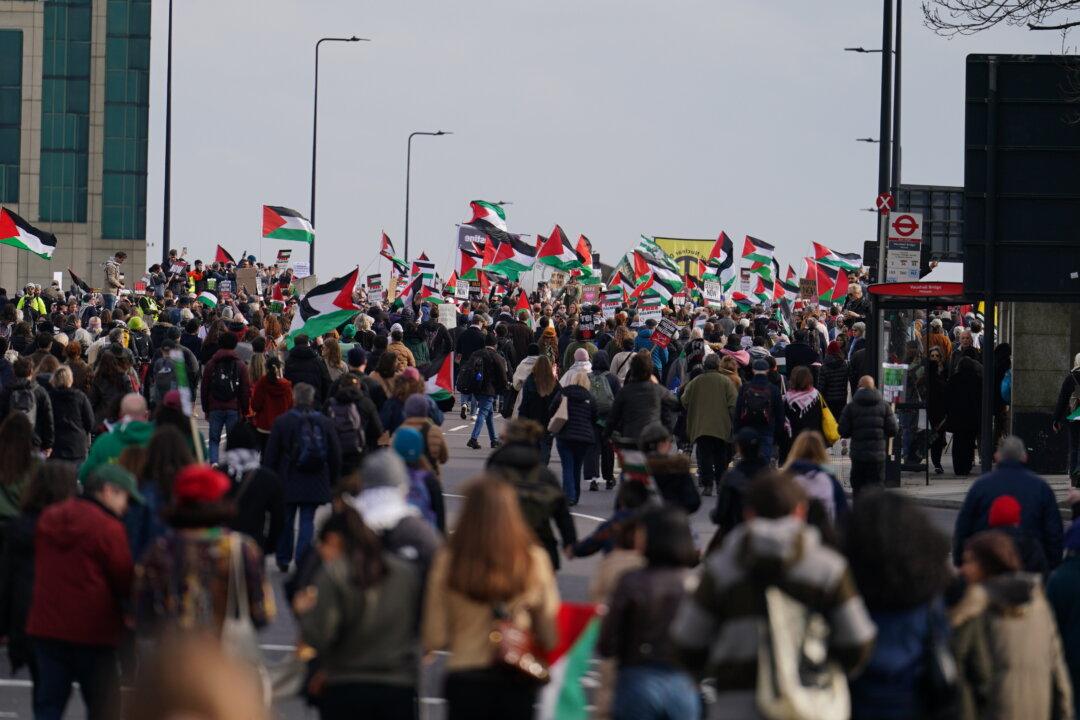Police briefly detained an anti-Hamas demonstrator on Saturday after his banner saying “Hamas is Terrorist” was snatched by a pro-Palestinian protester.
The Metropolitan police claimed that the man was arrested for “assault,” and de-arrested after officers “fully reviewed footage provided of the incident.”





